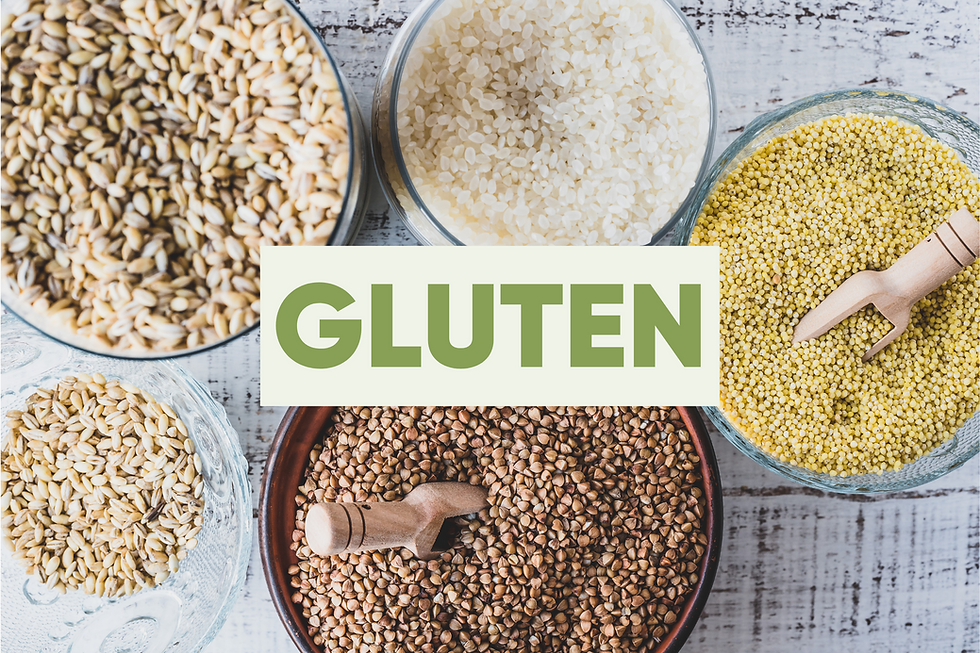Everything You Need To Know About Gluten
- Jeetu Sharma

- Apr 6, 2024
- 2 min read
Updated: May 7, 2024
Another buzzword that we constantly hear from trainers and celebrities these days is gluten. From packets of chips to menus in restaurants, everyone is obsessed with “gluten-free” food. But, what is gluten? And why is it suddenly a demon?

Gluten is a naturally occurring protein that is found in wheat, barley and rye and is also what makes your bread fluffy and chewy. While gluten in itself is not bad for people whose bodies can tolerate it, what’s not great about it is that it can cause serious side effects in certain individuals. Everyday dishes that contain gluten include- bread, pastries, cookies, pasta and most condiments like soy sauce.
Some people react differently to gluten, where the body senses it as a toxin, causing one’s immune cells to overreact and attack it and this is when it turns harmful. Thus, a gluten-free diet i.e., foods devoid of any form of gluten, is suggested to people who are suffering from this disorder that is celiac disease. Naturally gluten-free foods like fruits, vegetables, nuts, fish and eggs along with grains like quinoa, millet and corn are necessary to make up for the loss of nutrients like magnesium, iron and B vitamins from the diet.
But in a superficial world with unrealistic beauty standards, a gluten-free diet is also popular among people who haven't been diagnosed with a gluten-related medical condition. The claimed benefits of the diet like improved health, weight loss and increased energy motivate them to pursue this course. A survey by Harvard University shows that the gluten-free food industry has grown 136% from 2013 to 2015 with almost $12 billion in sales in 2015. Interestingly, studies show that people who do not have celiac disease are the biggest purchasers of gluten-free products.
In conclusion, adopting a gluten-free diet is crucial for individuals with celiac disease, wheat allergy, or gluten sensitivity to manage health issues effectively. For those without these conditions, there's no substantial evidence supporting extra health benefits from going gluten-free.



Comments